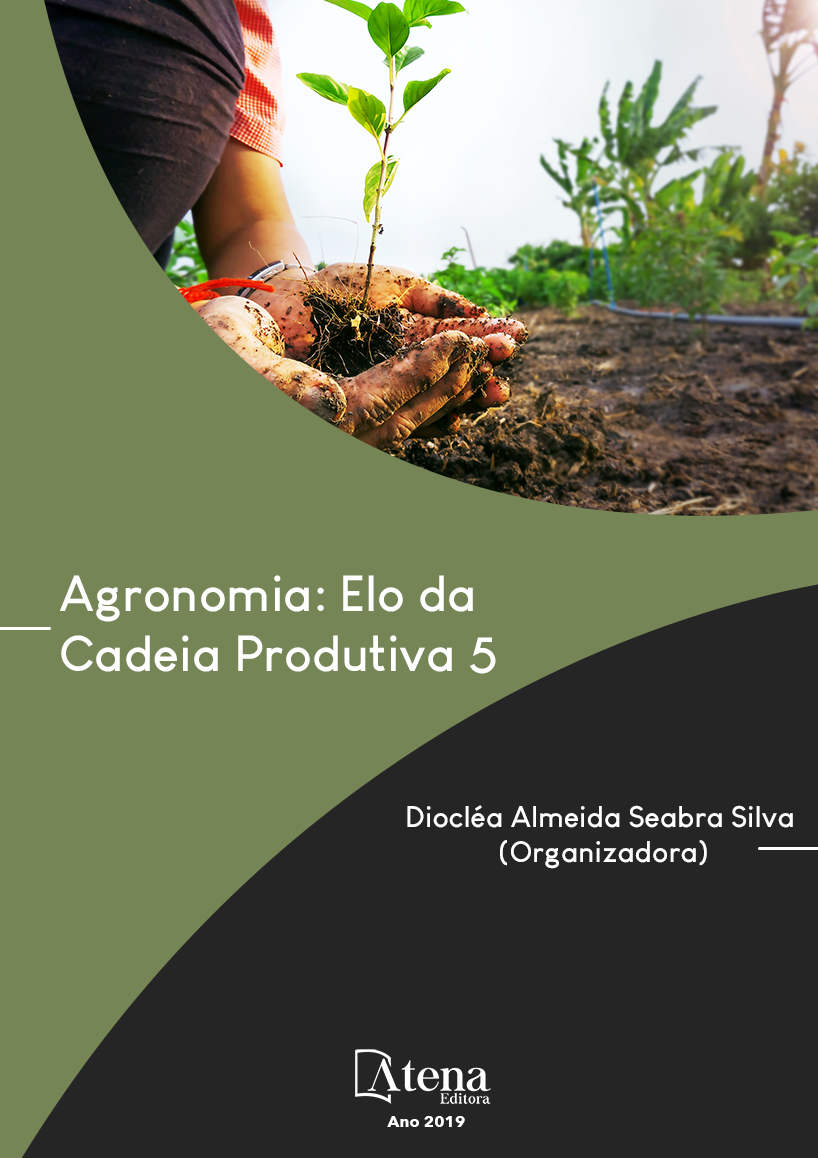
AVALIAÇÃO DE DIFERENTES ALTURAS DAS PLANTAS NA PRODUTIVIDADE DA CULTURA DO TOMATEIRO EM CULTIVO ORGÂNICO
A agricultura orgânica tem enfoque
sustentável seguindo as legislações referente
aos aspectos sociais, ambientais e econômicos
visando à conservação do planeta e a produção
de um alimento de maior qualidade. Dentre as
hortaliças mais consumidas temos o tomate,
que vem ganhando destaque com o cultivo sob
sistema orgânico, com produtos de qualidade
e um sabor atrativo ao consumidor. No entanto
no mercado de produtos as hortaliças têm seu
preço variável, assim, adota-se de meios que
possibilitem a maior viabilidade econômica.
O objetivo deste trabalho é o cultivo de
tomate sob sistema orgânico, avaliando-se a
melhor altura para condução do tomateiro e a
viabilidade econômica da produção na época
entre dezembro e janeiro. O experimento
foi realizado em ambiente protegido, no
delineamento inteiramente casualizado, em
esquema de parcelas, que consistiram em
quatro tratamentos, com cinco repetições
cada, totalizando 20 parcelas. Os tratamentos
consistiram em T1= 1,40 m, T2= 1,60 m,
T3= 1,80 m, T4= 2,00 m de altura. Analisouse a produção em kg de tomate do híbrido
Compack® no sistema de tutoramento com
uma haste vertical sob diferentes alturas das
plantas e a viabilidade econômica da produção
quanto a venda do tomate. Não houve diferença
significativa entre os tratamentos utilizados,
mas observou-se que a época de colheita
entre dezembro de 2017 e janeiro de 2018 foi
favorável quanto à venda do tomate
AVALIAÇÃO DE DIFERENTES ALTURAS DAS PLANTAS NA PRODUTIVIDADE DA CULTURA DO TOMATEIRO EM CULTIVO ORGÂNICO
-
DOI: 10.22533/at.ed.24319031210
-
Palavras-chave: Cultivo sustentável. Experimentação agrícola. Técnicas agroecológicas. Viabilidade econômica.
-
Keywords: Cow’s urine. Neem oil Tutoring. Economic viability
-
Abstract:
Organic agriculture has a
sustainable approach following the laws related
to social, environmental and economic aspects
aiming at the conservation of the planet and the
production of a higher quality food. Among the most consumed vegetables we have the tomato, which has been gaining prominence
with the cultivation under organic system, with quality products and an attractive
flavor to the consumer. However, in the product market, vegetables have a variable
price, thus adopting means that enable greater economic viability. The objective of
this work is the tomato cultivation under organic system, evaluating the best time for
tomato conduction and the economic viability of the production between December and
January. The experiment was carried out in a protected environment, in a completely
randomized design, in a plots scheme, which consisted of four treatments, with five
replications each, totaling 20 plots. The treatments consisted of T1 = 1.40 m, T2 = 1.60
m, T3 = 1.80 m, T4 = 2.00 m in height. It was analyzed the production in kg of tomato
of the hybrid Compack® in the tillage system with a vertical stem under different plant
heights and the economical viability of the production regarding the sale of the tomato.
There was no significant difference between the treatments used, but it was observed
that the harvest season between December 2017 and January 2018 was favorable for
tomato sales
-
Número de páginas: 15
- Gustavo Roque Goulart
- Juliano Cordeiro
- Alessandro Jefferson Sato
- Belmiro Saburo Shimada


